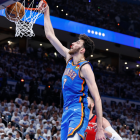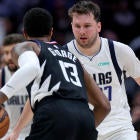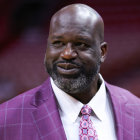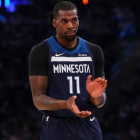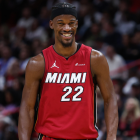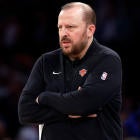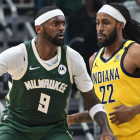In his latest dispatch with Charlie Rosen at the Crossover, posted six months after he originally wrote the various entries, New York Knicks president Phil Jackson drew a lot of attention for saying that his biggest mistake so far was not including Jae Crowder in the Tyson Chandler/Raymond Felton trade to Dallas. Crowder was then swapped to Boston in the Rajon Rondo deal, and Boston got a borderline All-Star wing who plays top-notch defense and is a huge part of their core while the Mavericks watched Rajon Rondo walk after three months.
But lost in that conversation was something familiar: his constant and insistent defense of the Triangle offense. In many ways, the success of the Triangle seems more important to Jackson than the success of the Knicks. Jackson has refuted every criticism of the system, that it's outdated, that it limits guards too much in today's NBA, that it's too complex, that its best players have always broken the system more often than not.
In this week's edition, Jackson continued to try and put it in perspective. Here are his comments, which some analysis.
"Even when we were 22-22, we were concerned about losing games because of fourth-quarter meltdowns. The guys hadn't developed an instinctive feel for the triangle, so they were cautious, played by rote, and our offense became predictable. When in doubt, they too often resorted to individual play. All of this created lots of media criticism of the triangle offense itself."
You notice how whenever there's criticism of the system, the problem is always an execution function that stands with the players. It's never connected to what kind of personnel they have, the limitations of the system when defended by today's NBA players, and its predictability.
The system relies on a series of decisions that have to be processed. And to its credit, it rewards smart, instinctive players who make quality decisions that create high-percentage shots. But any system has to be able to adapt to its personnel, and that's a massive weakness with the triangle. With any other system, you have elements that any player can incorporate. With the Triangle... you either get it or you don't.
"But, really, when you come down to it, the triangle is just a way to format basic basketball. Lots of teams run many aspects of the triangle, with San Antonio being the most successful example. What we lacked that, say, the Spurs had, were guards who could penetrate and force defenses to make the kinds of adjustments that left other players open. That's one reason why we drafted Jerian Grant.
OK, well, for starters, the Knicks traded Grant this summer, despite him showing real ability at the guard position, which is something they've really needed, and despite him providing a really nice backup option to Derrick Rose -- who, if you haven't heard, comes with some injury concerns.
Second, this "the Spurs/Warriors run it!" is an immensely popular defense of the Triangle. Except those teams also incorporate elements of Mike D'Antoni's 7 Seconds or Less, and a motion offense, and other elements. The best coaches incorporate a wide range of ideas, and again, adapt them to the personnel they have.
Now, his point about guards who can penetrate and force defenses rotate, which gets guys open, is fair, even if much of that is orchestrated from weak-side and secondary action, and pick and rolls. (That sounds technical; it's just not the most "triangle-y" part of the Triangle.) In any event, that's why they got Derrick Rose, which was a fundamentally smart and sound gamble on Jackson's part.
"Nevertheless, early in the season, we beat some really good teams like Oklahoma City, Houston, Boston, Toronto, Atlanta, Detroit and Portland. But when you play teams multiple times you have to keep adding elements to both your offense and your defense. Yet we never did evolve. For example, we were never able to develop the recognition to properly execute many of the basic automatic options that make the triangle effective. So we couldn't make the appropriate counters when defenses pressured the wings and we wound up turning the ball over and giving up easy run-out scores. Plus, the second or third times we played teams, our game plans remained somewhat elementary while theirs had progressed.
That "basic automatic options" is an interesting point. The Hawks have been one of the best offensive units in the league under Mike Budenholzer. One thing that team talked a lot about (before it was deconstructed this summer with the Teague trade and Al Horford's signing with Boston) was how simple and instinctive their play was. It was about playing to natural impulses.
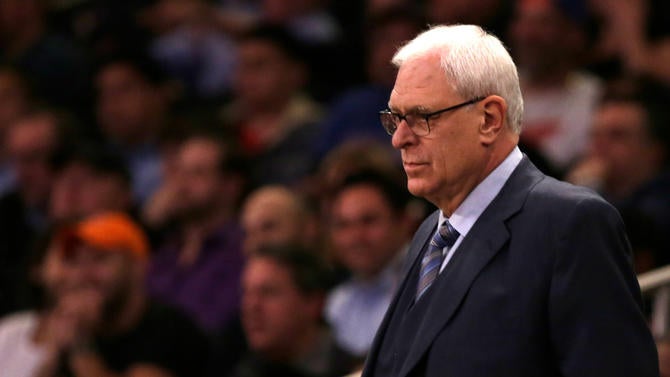
Players talk about these concepts a lot. You play high level basketball for 82 games, you want a certain amount of comfort. The Triangle is based on recognition of reads and then making plays based off that decision tree. But if those decisions don't vibe with your own instyincts, it makes it difficult to play comfortably. Absent comfort, confidence suffers. It's a whole tree of breakdowns.
Jackson's contention is that these problems are built off a lack of fundamentals in these players, but it's never that simple. Go back and read "The Jordan Rules," Sam Smith's epic tale of the Bulls' first championship season when Jackson tried to get Michael Jordan and company to adapt to the Triangle and you see a lot of the same frustrations on Jordan's part. Jordan adapted some of those concepts, but he also chose to play outside the system often. It's not simple.
This issue isn't going to get resolved. Critics of the triangle will pounce on any failure as a signal of how the league has moved beyond Tex Winter's design, while those that defend it in principle will constantly see any breakdown as a problem with the players executing it and not with the system itself.
This is where Jeff Hornacek's role as the new coach becomes interesting. Hornacek always did a good job in Phoenix, regardless of whatever issues he had with the players, in adapting elements to their strengths. If they can find a balance between what the players need and what the Triangle demands, the Knicks could finally prove to be a serious experiment in terms of whether the triangle can work without Jordan, Shaquille O'Neal, or Kobe Bryant.
Source: The Phil Jackson Chronicles Part 7 - 2015-16 Season Postmortem















